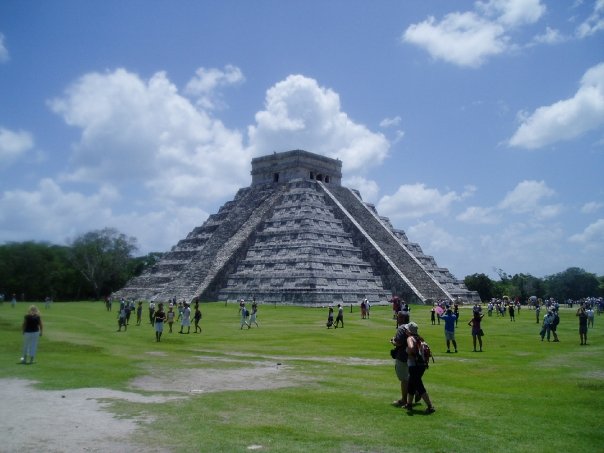When creating an economic system for your setting, first you have to understand what forms that system can take. The main forms of interpersonal trade found in fantasy worlds are Silent Trade, Gift Exchange, Barter, Medium of Exchange, Currency, and Credit.
Silent trade is actually still practiced today in some parts of the world, even where you least expect it. One party leaves their goods in a designated spot, then retreats back away from the area. The second party then looks at the goods, leaves what they believe to be the appropriate amount of their goods in the same spot, then retreats. The first party then comes back, and if it is acceptable, takes the traded goods and leaves. If not, they might just retreat again to show that the second party needs to leave more in trade. If the second party does not with to trade more, they simply pick up their goods and leave. If they come to an agreement, they will both leave with their trade. Note, the parties never speak during the transaction, and may not even see each other. This system is sometimes used in the drug trade to prevent law enforcement from seeing any money being exchanged from one cartel to another when they are trading one type of drugs for another.
Gift exchange is also still used today, as can be seen when heads of state meet each other. In this case, goods can be exchanged for goods directly. This is often ceremonial in nature. Giving poor gifts in exchange for better goods is viewed poorly and can lead to a loss of reputation. This form of trade works best in honor societies where family, clan, or other reputations are extremely important.
Barter is an extremely common form of goods trading. If you have something to trade and want something, you can try to trade them directly. This can even apply to services. For example, if you want someone to mill your wheat into flour, you can give them some of that wheat in exchange for them to do that for you. If you have apples and want meat, you can try to exchange one for the other. People in my writing club trade beta reads so we don’t have to pay for someone to do it for us. If you are trading a good or service directly for another good or service without money changing hands, you are bartering.
Sometimes, the people who have what I want don’t want to trade for what I have. In those cases, a medium of exchange can be used. This is basically another good that everyone agrees has value or almost everyone wants for one reason or another. Salt, silver, and gold have all been used as a medium of exchange. What you are basically doing with a medium of exchange is bartering twice. Once when you trade whatever you have for the salt or whatever, then again when you’re trading your salt for the products you actually want.
A medium of exchange can become extremely cumbersome. For example, how much salt are you willing to trade for your house? What quality is that gold ore you’re trying to trade? Is that really silver, or is it an alloy? Once people have figured out a medium of exchange, these limitations eventually lead to groups, typically a government, to come up with a currency. These are minted objects everyone agrees to be of a particular value. These could be as simple as coins made from gold or silver to as complicated as a system of particular items with a specific delineation (a coin made of platinum is worth twenty made of gold, four hundred silver coins, or eight thousand copper coins).
The most complicated, but most advanced, form of trade is the use of credit. This allows you to buy things without needing all of the money at once. This allows us to buy large items and pay them off over time or at a later date. For example, say you find out that silk is selling for a premium in another town. You can use credit to buy said silk, take it to that town, sell it for a profit, then repay the loan, perhaps with some interest.
With all that out of the way, Shildaria uses a system of currency. This is primarily because it’s easier for my readers and players to deal with and easier for me to use in my setting. But, I don’t want to use the typical gaming convention of a decimal-based platinum, gold, silver, copper coinage system. I’m going to use something similar to what was used in medieval Japan, where they had a coin that was defined as the cost of feeding a soldier in the field for a year. The avena is an octagonal iron bar about 1 inch long and 1/4 inch diameter and is defined as the amount required to shelter and feed a horse for a single day. A crysa is an octagonal gold bar about a half inch long and a 1/4 inch diameter, which is worth a hundred avena. The royal seal is cast into each end of each bar to show that it is official currency.
Shildaria has a fairly high isolation value, which means trade with their neighbors is difficult and uncommon. This means that foreign currency has no value outside of the weight of the metals that make up the currency. This means that those traders who do come to Shildaria are looking to barter or will be trying to leave the country with goods rather than currency. Internal trade works fine with the standard avena and crysa bars.
The mining and manufacturing center of the country is in the northern provinces and Turris, where the capitol is located. Turris is also the biggest overall trade hub in Shildaria. The central provinces south of Turris are the breadbasket for the area, where most of the food crops are grown. The southern provinces are more sparsely populated due to the abomination attacks, but are also have the spaces required for the best horse breeding.
Next week, I’m going to talk about how my writing is going. I still have a lot to talk about when it comes to Shildaria after that. If you have any comments or questions, leave them below. See you next Thursday!


I didn’t realize how much goes into writing a book! It’s a lot more complicated than I thought it would be! You are doing a great job!
This is just for my setting. I haven’t started the writing process for the books, yet. I do have my series plan put together, which is helpful. Coming up with a setting doesn’t have to be this complicated. If I was writing in modern day America, I wouldn’t have to come up with all this. There is still a bunch of research, obviously, but it isn’t the same as coming up with it from scratch. Doing this setting work up front helps keep everything I do later consistent.
It’s a lot of work, but it’s also a lot of fun.